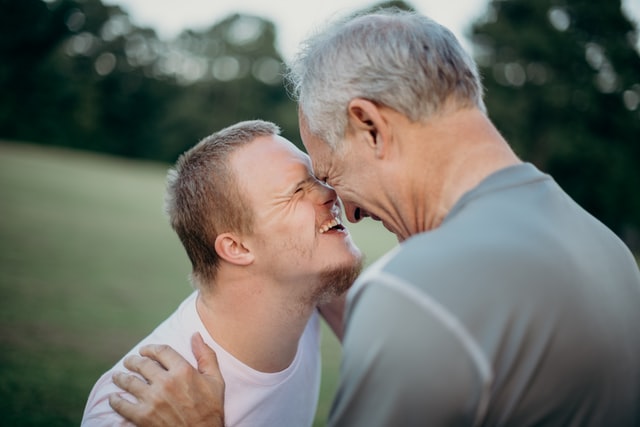The Last Children of Down Syndrome
By Sarah Zhang,
The Atlantic
| 11. 18. 2020
Prenatal testing is changing who gets born and who doesn’t. This is just the beginning.
Photo by Nathan Anderson on Unsplash
Every few weeks or so, Grete Fält-Hansen gets a call from a stranger asking a question for the first time: What is it like to raise a child with Down syndrome?
Sometimes the caller is a pregnant woman, deciding whether to have an abortion. Sometimes a husband and wife are on the line, the two of them in agonizing disagreement. Once, Fält-Hansen remembers, it was a couple who had waited for their prenatal screening to come back normal before announcing the pregnancy to friends and family. “We wanted to wait,” they’d told their loved ones, “because if it had Down syndrome, we would have had an abortion.” They called Fält-Hansen after their daughter was born—with slanted eyes, a flattened nose, and, most unmistakable, the extra copy of chromosome 21 that defines Down syndrome. They were afraid their friends and family would now think they didn’t love their daughter—so heavy are the moral judgments that accompany wanting or not wanting to bring a child with a disability into the world.
All of these people get in...
Related Articles
By Diaa Hadid and Shweta Desai, NPR | 01.29.2026
MUMBRA, India — The afternoon sun shines on the woman in a commuter-town café, highlighting her almond-shaped eyes and pale skin, a look often sought after by couples who need an egg to have a baby.
"I have good eggs,"...
By George Janes, BioNews | 01.12.2026
A heart attack patient has become the first person to be treated in a clinical trial of an experimental gene therapy, which aims to strengthen blood vessels after coronary bypass surgery.
Coronary artery bypass surgery is performed to treat...
By Staff, ScienceDaily | 01.05.2026
Scientists at UNSW Sydney have developed a new form of CRISPR technology that could make gene therapy safer while also resolving a decades-long debate about how genes are switched off. The research shows that small chemical markers attached to DNA
...
Following a long-standing CGS tradition, we present a selection of our favorite Biopolitical Times posts of the past year.
In 2025, we published up to four posts every month, written by 12 authors (staff, consultants and allies), some in collaboration and one simply credited to CGS.
These titles are presented in chronological order, except for three In Memoriam notices, which follow. Many more posts that are worth your time can be found in the archive. Scroll down and “VIEW...




